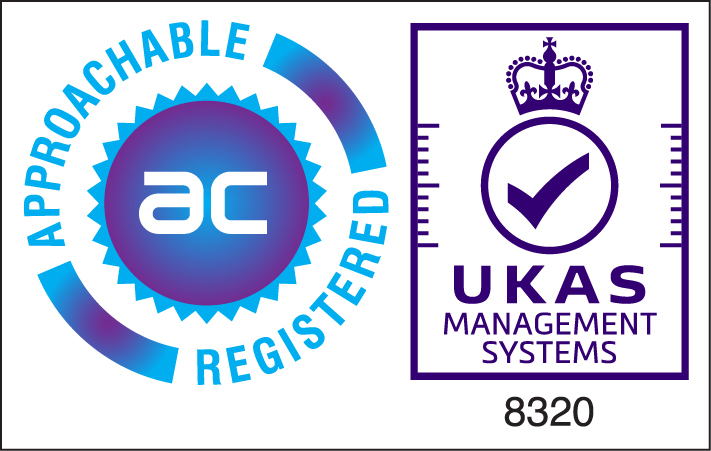The Top #3 Tech Trends Everyone Must Be Ready For
The Top #3 Tech Trends Everyone Must Be Ready For
The Top #3 Tech Trends Everyone Must Be Ready For
Live from our Malta Tech event, James Hall, HPE Worldwide CTO for Storage and Peter Stroud, CEO of FGS lift the lid on the #3 emerging tech trends that matter most for iGaming and Financial Services firms.
Watch the full interview on FGS TV >>
What technologies are gaining the most traction? What are trends are building fastest momentum in an accelerating world? How can technology leaders best separate signal from noise?
Read on for #3 essential tech trends you should be following in 2024.
#1 AI Slow Down
James says: “Just like other era-defining shifts – internal combustion engine, electricity, the WWW – the hype eventually recedes. We’re seeing this with AI.
Today, for AI, the key is to slow down and peel it right back. Forget the hype and step out of the AI arms race that certain channels are perpetuating. Before you go and spend a tonne of budget on GPUs or AMD chip sets get your data into a central location and test it to make sure you trust it.
If you don’t, the insight that you drive from your data will be totally worthless. You’ll have spent a whole tonne of money getting a whole tonne of outcomes that mean nothing.
Right now, no one is doing it fast, or well. Every AI project I’ve seen globally, across all industries, are pulling in silos of data – some on block, some of detached disc, some on laptops – and trying to analyse data and killing their networks in the process.
But if you don’t trust the data, and run AI modelling, using incomplete or out of context data the business decisions you make as a result could be fatal.
There is this massive AI race. Today, around this room, you’ve shared that you all have an AI project running at the moment. That’s 100% of the iGaming or Financial Services firms in the room.
If you’re looking at AI, before you go and invest a tonne of budget on compute and GPUs, you have to do three things. #1 look at the data #2 understand the data #3 work out if you trust the data.
Because AI is not about modelling and deep learning – it is about insight and a business decision.”
Peter adds: “That caution around AI is incredibly well timed. I also want to touch on the sustainability issue when we consider the massive power requirement. Everyone is buying GPUs at the moment, and they’re running at 40% / 20% utilisation, burning tonnes of power. But if, as you say, often times these projects are worthless because the data in is crap, then this is energy-wastage on a scale that the planet simply cannot afford. This considered approach to AI is key to ‘baking in’ sustainability for firms targeting net zero emissions.”
#2 Cloud Sensible
James says: “We’re seeing many organisations taking applications out of the public cloud and adopting a cloud sensible hybrid strategy. And Google and AWS announcing that you can take your data out and they won’t charge for it tells the market something and speaks to this trend (it is all or nothing thought, so just make sure you read the T&Cs in the small print!).
Sensible means the right applications in the cloud for the right reasons at the right time.
In the past, perhaps through Covid, organisations might have decided to put applications in the cloud. But now, is that strategy still best? Now does it make more sense to take that out and put it on prem, or somewhere else because we can drive better economies of scale by doing something different?
In the UK we’re seeing organisations like Co-operative Group adopting a hybrid cloud approach to achieve operational simplicity and slash public cloud costs. Scott Robertson, Co-op’s Principal Enterprise Architect—Foundation Technologies is driving this ‘cloud sensible’ thinking, and his moto is ‘the right workloads, in the right place, for the right reasons’.
Catch Co-op’s take on this and dig into why hybrid is big in this HPE Dark Matter Film: Clouded, uncovering the culture of cloud >>
#Out-Tasking
James says: “At the moment the market is struggling to find resource.
In response to this out-tasking is really building momentum. We’re finding organisations want to off-load the tasks that they don’t have time to do. They want their in-house people – far more valuable people – doing far more valuable stuff.
This is not outsourcing – it’s not giving full management of your IT services to an external service provider.
Out-tasking, on the other hand, is more micro-segmented. We’re seeing momentum building around IT decision makers assesses which specific functions they want to manage, and which they would prefer to farm out to specialists.
The core difference between the two approaches is the level of responsibility your team holds over IT. Taking an out-tasking approach means your team retains full oversight and governance of the environment from start to finish, while receiving external support from multiple providers.”
Peter adds: “That out-sourcing trend is an interesting one. We’re also seeing a trend towards resource strategy. Particularly here in Malta, which has a smaller pool of talent but a large pool of really big iGaming and Finance firms. Resource strategy is where the resource dictates the strategy. The resource is forcing the strategy, determining the direction of travel. I warn the C-Suite against this approach. Senior levels of management need to take care not to be swayed by what the staff are saying, it’s the business that should be driving the strategy not the resource.”
Watch the full interview on FGS TV >>
To stay on top of the latest on new and emerging tech trends, make sure to follow us on LinkedIn, and YouTube, and check out our IT Solutions Knowledge Hub, with insight and updates across Storage, Security, SaaS and more.


